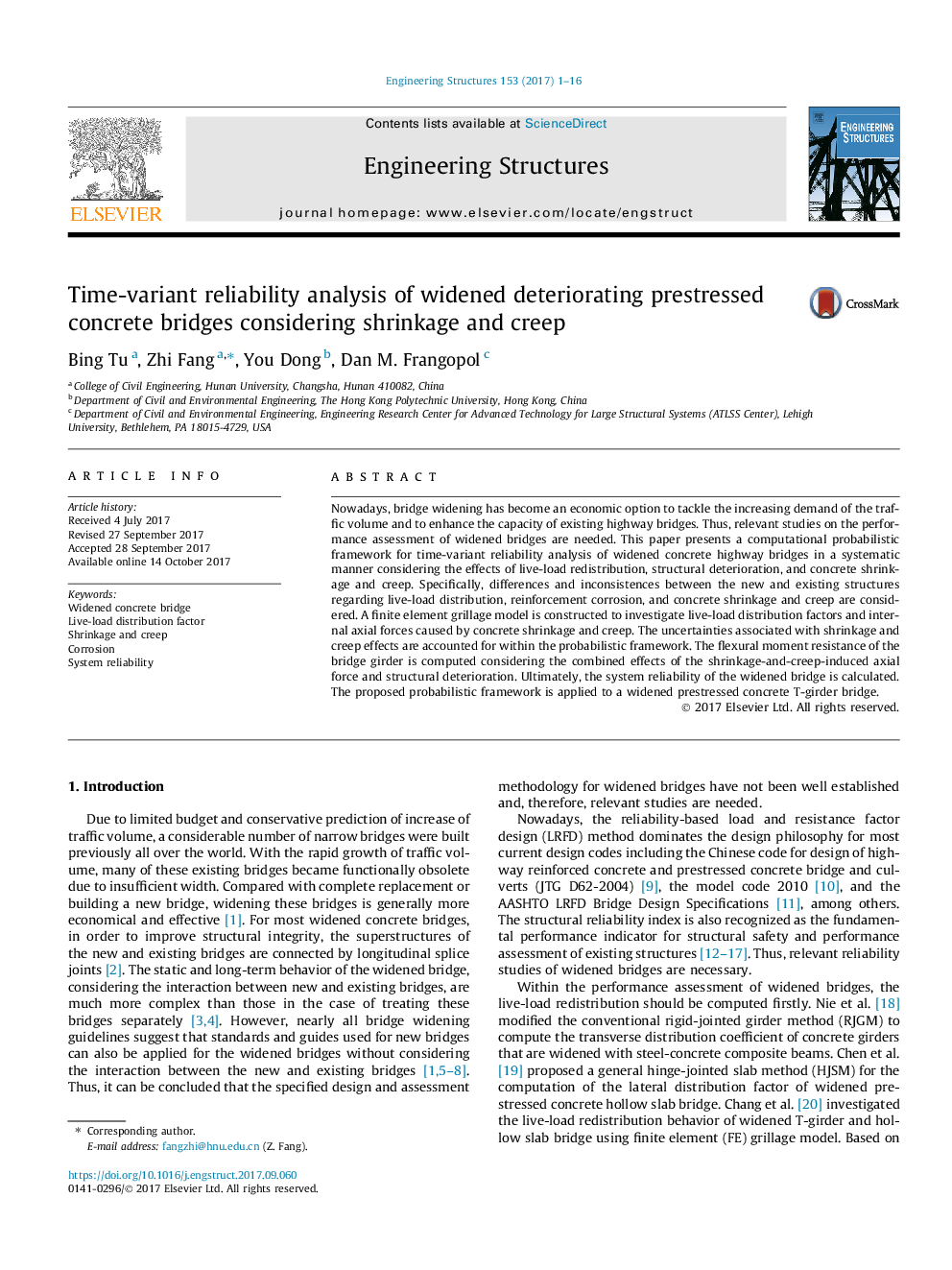| Article ID | Journal | Published Year | Pages | File Type |
|---|---|---|---|---|
| 4914301 | Engineering Structures | 2017 | 16 Pages |
Abstract
Nowadays, bridge widening has become an economic option to tackle the increasing demand of the traffic volume and to enhance the capacity of existing highway bridges. Thus, relevant studies on the performance assessment of widened bridges are needed. This paper presents a computational probabilistic framework for time-variant reliability analysis of widened concrete highway bridges in a systematic manner considering the effects of live-load redistribution, structural deterioration, and concrete shrinkage and creep. Specifically, differences and inconsistences between the new and existing structures regarding live-load distribution, reinforcement corrosion, and concrete shrinkage and creep are considered. A finite element grillage model is constructed to investigate live-load distribution factors and internal axial forces caused by concrete shrinkage and creep. The uncertainties associated with shrinkage and creep effects are accounted for within the probabilistic framework. The flexural moment resistance of the bridge girder is computed considering the combined effects of the shrinkage-and-creep-induced axial force and structural deterioration. Ultimately, the system reliability of the widened bridge is calculated. The proposed probabilistic framework is applied to a widened prestressed concrete T-girder bridge.
Keywords
Related Topics
Physical Sciences and Engineering
Earth and Planetary Sciences
Geotechnical Engineering and Engineering Geology
Authors
Bing Tu, Zhi Fang, You Dong, Dan M. Frangopol,
